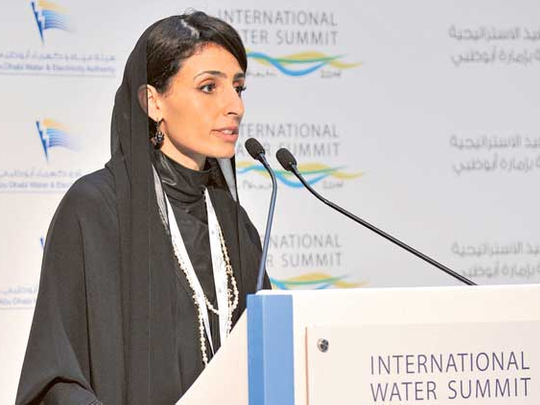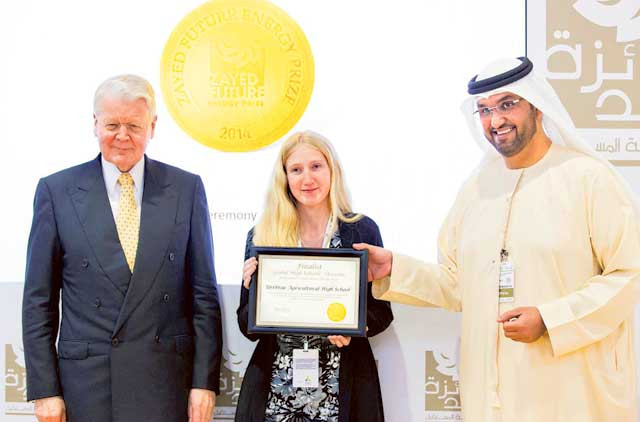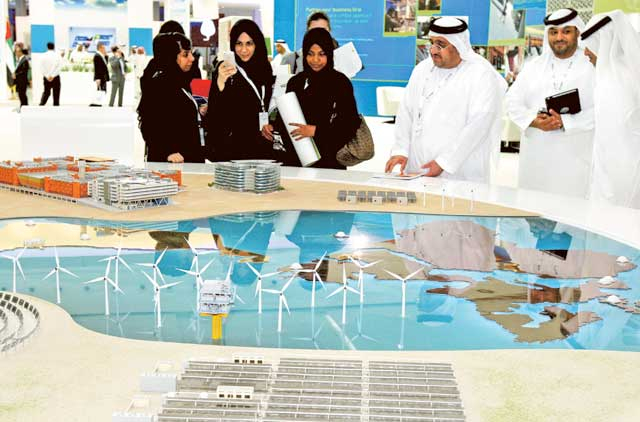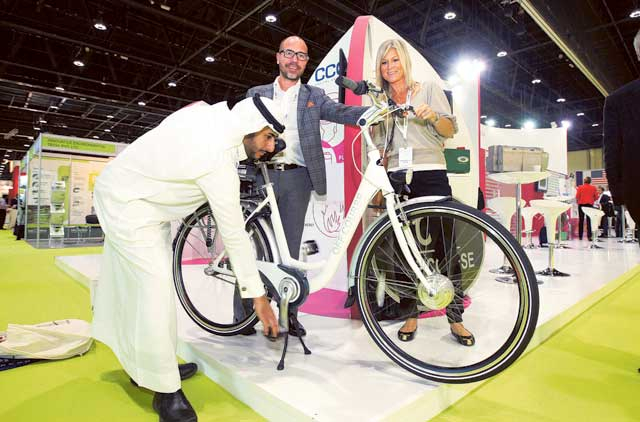
Abu Dhabi: Abu Dhabi’s total consumption of water resources reached up to 3.3 billion cubic metres in 2011 and it is expected that the demand for water will increase for up to about 5 billion cubic metres by 2030, officials said here on Tuesday.
The current usage of groundwater reservoirs is about 15 times more than the natural recharge rates. With the increase of population from 212,000 in 1975 to more than 2 million by 2011, demand for fresh water has also increased and the emirate bears the high cost of seawater desalination.
This has prompted the emirate to frame the Water Resources Management Strategy in line with the Emirate of Abu Dhabi 2030 Plan. The purpose of the new strategy is to reduce the pressure on water sources in the emirate, to improve the standard of living, and to promote economic growth.
The strategy, providing a five year road map for the efficient management and conservation of water resources, was unveiled on Tuesday at the International Water Summit.
It aims to minimise the impact of water production, transmission and distribution on climate, air soil and marine water quality. The strategy also aims to ensure efficient indoor and outdoor consumption of all types of water in all sectors, including buildings, industries, agriculture, amenities and forestry.
The Permanent Committee for Setting and Implementing Water and Agricultural Strategies in the Emirate of Abu Dhabi (PCWAS) launched the strategy in the presence of Dr Rashid Ahmad Bin Fahad, Minister of Environment and Water; Dr Sultan Al Jaber, UAE Minister of State and CEO of Masdar; and Major General Obaid Al Hairi Salem Ketbi, Deputy General Commander of Abu Dhabi Police.
Majid Ali Al Mansouri, Chairman of the Department of Municipal Affairs and Deputy Chairman of PCWAS, inaugurated the strategy launch with the attendance of the committee’s members from various government organisations.
“The demand for water is so high and the recharge rate so low that we know our use of groundwater is unsustainable. The issue of water scarcity and water security is only getting more urgent. Today we have less water in our aquifers than we did last year and we are therefore one year closer to running out,” Razan Khalifa Al Mubarak, Secretary General of the Environment Agency — Abu Dhabi (EAD), said at the summit.
Delivering her keynote speech — Achieving Integrated Water Resource Management through Effective Water Governance — Al Mubarak said: “This sounds alarmist, but I know we are not alone. According to the United Nations Water Programme, water scarcity already affects almost every continent and more than 40 per cent of the people on our planet. By 2025, 1.8 billion people will be living in countries or regions with absolute water scarcity, and two-thirds of the world’s population could be living under water stressed conditions. We feel this acutely in the Arab region; of the 22 Arab League nations, 8 have the lowest water availability per capita in the world”.
“Groundwater in Abu Dhabi is essentially a non-renewable resource and our groundwater was laid down as long as 10,000 years ago during the last ice age. Fortunately, in the UAE, we have the financial resources to desalinate water for drinking and sanitation, but our groundwater resources are critical for our agriculture as well as to support our natural ecosystem, on which new economic sectors such as tourism rely on,” Al Mubarak said.














